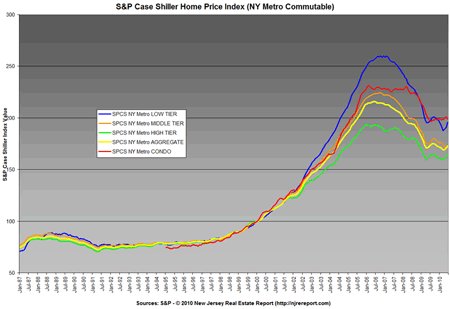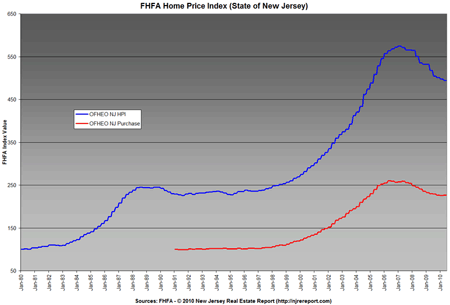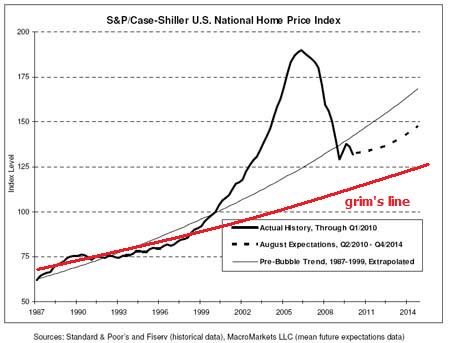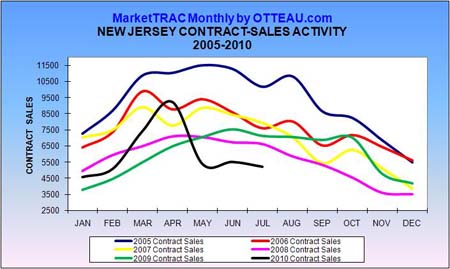From the Press of Atlantic City:
Few buy into career as Realtor
Phillip Golden became a real estate agent for Re/Max Community in Mays Landing in 2009, the year homeowners across the country filed nearly 4 million foreclosures, the result of a financial crisis that continues today.
After his first year in the industry, he said he has learned a lot and also helped coach struggling homeowners through their own crises.
“The slowness of the market has acclimated me to what the market should be,” he said. “Real estate is a slow investment. It’s not run-and-gun like it was. It’s not something that should be bought and traded like a stock.”
When the housing market began declining in 2006 and then plunged the following year, being a real estate agent went from being a lucrative career to a stress-filled livelihood.
“When the bubble burst, a lot of people just jumped,” said Judy Appleby, president of the New Jersey Association of Realtors, whose membership is down from a peak of 55,0000 members to about 48,000 now.
Since then, the people who did choose to get their real estate licenses have varying perspective on their new jobs.
…
Peggy Silverman colored her experience with a slightly less rosy brush since she got her real estate license in 2008, when the federal government was funneling billions of dollars into the economy to stem a tide of foreclosures and layoffs.“It’s been a nightmare,” said Galloway Township native who is now an agent for Prudential Diversified Realty & Associates in Smithville, Galloway Township.
Silverman, 61, was a cocktail waitress for 28 years in Atlantic City and needed a change. She had always been friendly and had a keen interest in interior design, so she thought selling homes would be a good fit.
She knew the market was bad, but had no idea how bad until she got in the midst of it.
“The market has gone straight down like an airplane nosediving,” she said. She now looks at the paper daily, looking to get a second career in the health care industry.
…
After being one of the first waitresses at Bally’s Atlantic City, and now a real estate agent for about two years, she hopes she can find a second job that’s a little bit more resistant to a bad economy.“I got to pay my mortgage. I got to eat, and real estate has almost come to a standstill,” she said. “And that’s a known fact.”




